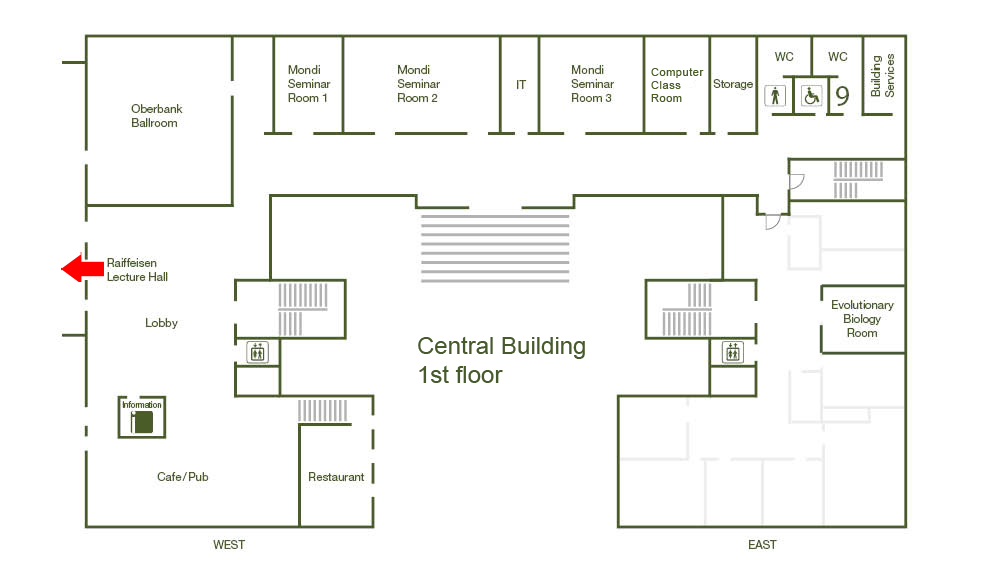Institute Colloquium: Populations in Lineage Perspective
Date
Monday, January 9, 2012 16:30 - 17:30
Speaker
Edo Kussell (New York University)
Location
Raiffeisen Lecture Hall, Central Building
Series
Colloquium
Tags
Institute Colloquium
Contact

Bacterial populations are increasingly understood to be highly heterogeneous, due to effects of noisy gene expression, stochastic switches, and other mechanisms that maintain phenotypic diversity. Their population dynamics are thus strongly affected by selective forces acting on different subpopulations. In addition, the physiological responses of individual cells to fluctuating conditions affect the phenotypic structure of the population. This talk presents a theoretical framework for understanding these dynamics using individuals' phenotypic histories observed over their ancestral lineage. The lineage perspective enables the action of selection to be decoupled from that of individuals' responses. Experiments on continuously dividing bacterial populations growing in microfluidics devices are being used to test aspects of this approach.